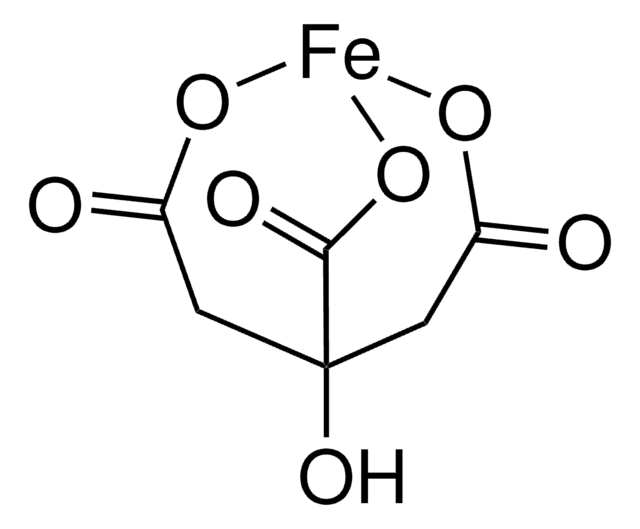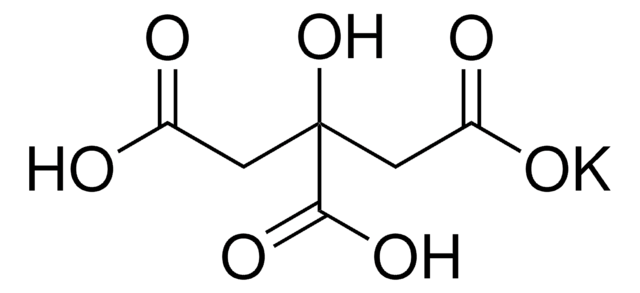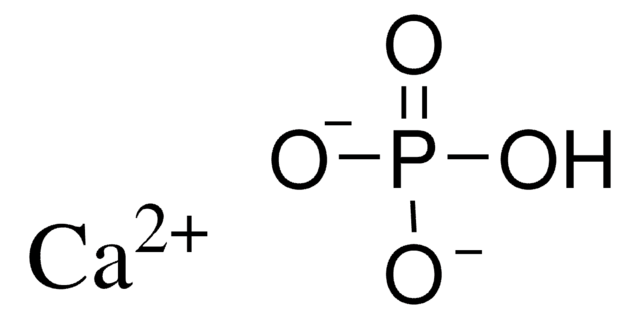Key Documents
C8385
Potassium citrate tribasic monohydrate
≥98% (GC/titration)
About This Item
Polecane produkty
Próba
≥98% (GC/titration)
Postać
powder
strata
3.0-6.0% loss on drying
pH
8.0-9.5
rozpuszczalność
H2O: 100 mg/mL, clear, colorless
ciąg SMILES
O.[K+].[K+].[K+].OC(CC([O-])=O)(CC([O-])=O)C([O-])=O
InChI
1S/C6H8O7.3K.H2O/c7-3(8)1-6(13,5(11)12)2-4(9)10;;;;/h13H,1-2H2,(H,7,8)(H,9,10)(H,11,12);;;;1H2/q;3*+1;/p-3
Klucz InChI
PJAHUDTUZRZBKM-UHFFFAOYSA-K
Szukasz podobnych produktów? Odwiedź Przewodnik dotyczący porównywania produktów
Zastosowanie
Działania biochem./fizjol.
Kod klasy składowania
11 - Combustible Solids
Klasa zagrożenia wodnego (WGK)
WGK 3
Temperatura zapłonu (°F)
Not applicable
Temperatura zapłonu (°C)
Not applicable
Środki ochrony indywidualnej
Eyeshields, Gloves, type N95 (US)
Certyfikaty analizy (CoA)
Poszukaj Certyfikaty analizy (CoA), wpisując numer partii/serii produktów. Numery serii i partii można znaleźć na etykiecie produktu po słowach „seria” lub „partia”.
Masz już ten produkt?
Dokumenty związane z niedawno zakupionymi produktami zostały zamieszczone w Bibliotece dokumentów.
Klienci oglądali również te produkty
Nasz zespół naukowców ma doświadczenie we wszystkich obszarach badań, w tym w naukach przyrodniczych, materiałoznawstwie, syntezie chemicznej, chromatografii, analityce i wielu innych dziedzinach.
Skontaktuj się z zespołem ds. pomocy technicznej







